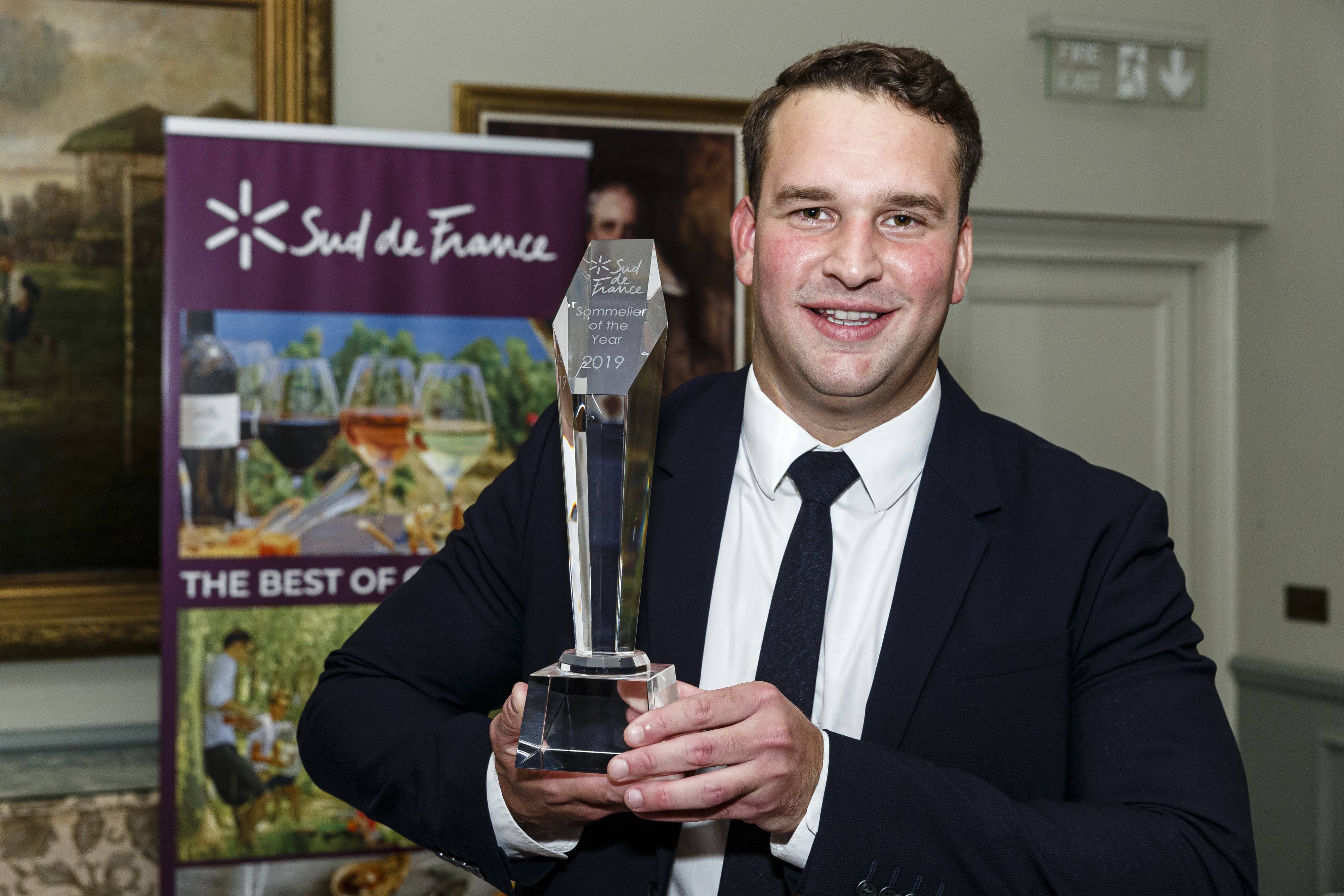Tennis’ famous Queen’s Club has seen its fair share of intense competition, but this week it was leading sommeliers who were under examination in the finals of the Sud de France Sommelier competition.
The Sud de France and Occitanie region of France is famed for its diverse range of styles of wines that come out of a region with a host of different terroirs, soil types and climatic conditions, buffeted by the influence of winds that come from the north, south, east and west. Which is great when you are looking to promote the depth of a particular wine region over another, but not so good when you are taking part in a sommelier competition that looks to test your knowledge of every nook and cranny of this vast and important wine region.
But that was the challenge that the sommeliers who fought their way through to the semi finals and finals stages of this year’s Sud de France Sommelier competition. The chance to be named the UK winner of this global event, with the added incentive of then being chosen to go forward to the grand final to be held next year and come up against the best of the rest of the world taking part in separate country competitions.
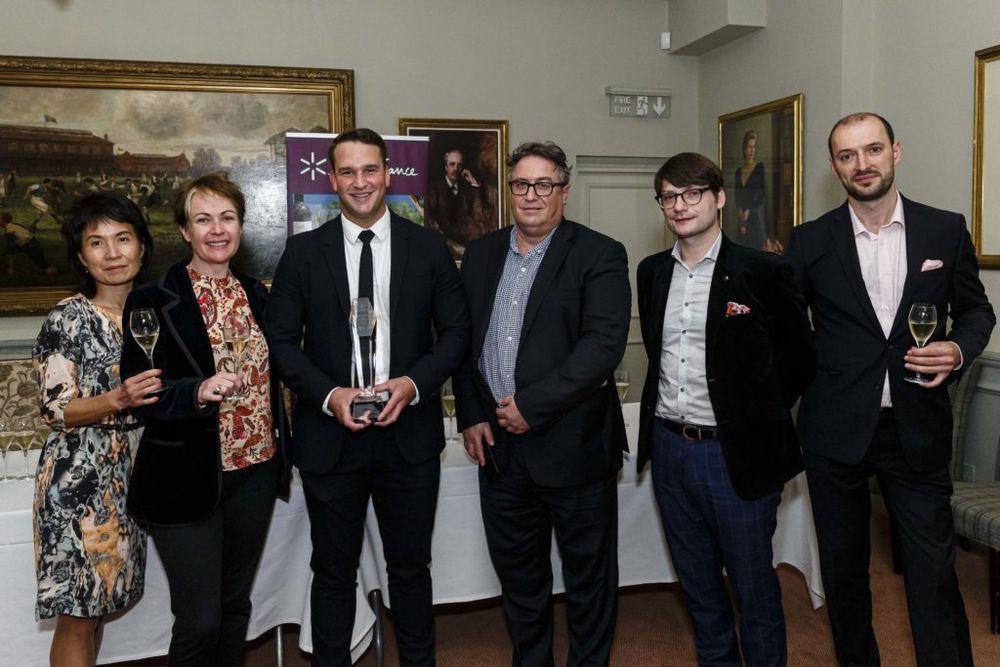
The Sud de France Sommelier judging panel and winner Andrés Rangel from Gymkhana. Miles Willis Photography
To do so they will have truly earned their place, having gone through a total of eight rounds of judging that tested and examined every bit of their sommelier experience and their understanding and appreciation of wines from the Sud de France.
In the end a competition can only have one winner and there must be something in the water at Gymkhana, one of London’s most prestigious premium Indian restaurants, as Andrés Rangel followed in the footsteps of his head sommelier, Valentin Radosav, who won the competition in 2016.
This year’s event was so closely fought with the three finalists only separated by a handful of marks. Alongside Rangel was, in second place, Ramiro Fernandez, sommelier at the Acquavit in London and Matthieu Ghezouli, sommelier at Restaurant Martin Wishart, in Edinburgh.
The Semi-finals
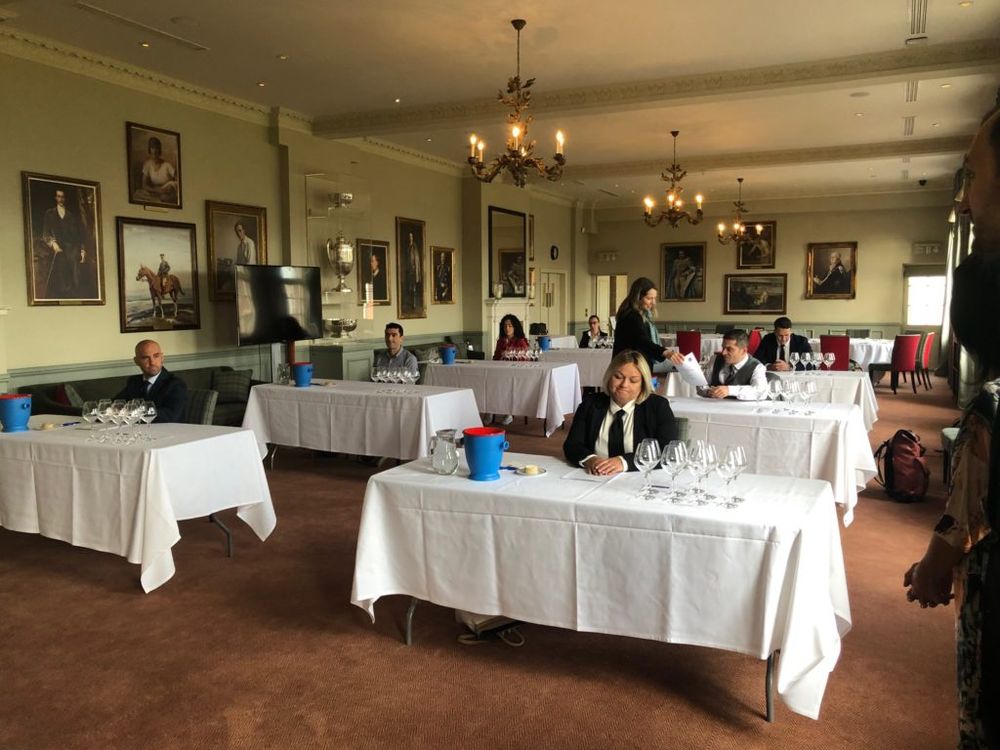
The semi-finalists waiting for proceedings to begin
Before the finals the day’s competition also included an intense semi-finals stage that included three rounds of judging. The semi-final was designed, said Sébastien du Boullay, promotions manager,to be a multi-faceted examination of each sommelier’s understanding and knowledge of the region.
To do so involved a series of tests including:
- A written exam where they have 45 minutes to answer a range of straight and multiple choice questions covering their: knowledge of appellations; style characteristics of specific grape variety like Mouvedre; the grape make up of an AOP, like Corbieres; their ability to identify a French culinary delicacy, where it originates from and then suggest a food pairing for it; identifying IGP and AOP regions on maps; as well as recognising photographs of well known landmarks and tourist sites, like the Pont du Gard aqueduct; and a straight commercial question looking at the benefits of selling wine by the glass.
* Picking out 10 mistakes on a wine list that analyses the candidate’s understanding of region, appellation, vintage and what grape varieties can be grown where. Here the candidate had to identify the wrongly named wine, and then explain of what the mistake is.
- A blind wine tasting of nine wines: four whites; four reds; and a sweet. The candidates are asked to break the wines down in terms of appearance; nose; palate; appellation; grape varieties; and the age/vintage.
Some of the examples in the written exam included questions such as:
- What is the minimum of Grenache in a Banyuls Garnd Cru? Answer: 75%
- What is the minimum percentage of Merlot in AOP Malepère? Answer: 50%.
- What is the percentage of vineyard dedicated to organic wine production in Languedoc-Roussillon? Answer: 10%.
- What is the difference between a Banyuls Rimage and Rimage Mise Tardive? Answer: Both are reductive style but Mise Tardive is with longer ageing (1-3 years).
- Muscat de Saint de Minervoisis made with: A) Muscat Petit Grains B) Muscat d’Alexandrie and C Both. (Answer: Muscat Petit Grains.
As you can see the standard was high so congratulations also go to the other semi-finalists who all came from Chewton Glen including: Natalja Senina, sommelier; Rossella Uggias, sommelier; Elisa Marchini, assistant head sommelier and Davide Buttu.
The Final
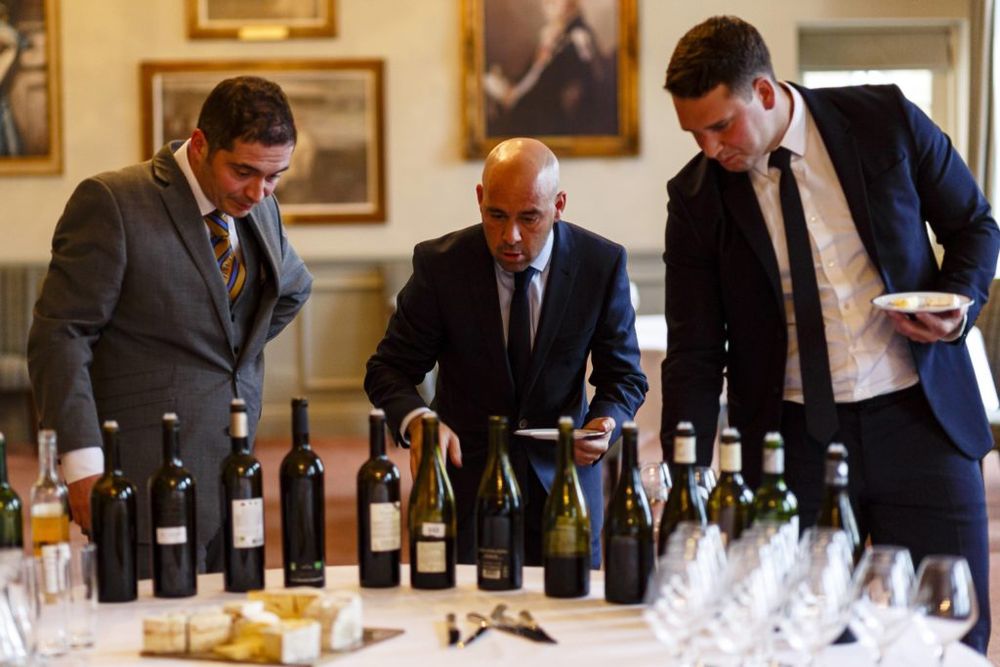
The three finalists in the competition contemplate their cheese and wine pairings. Miles Willis Photography
The final was fought out by the three best performing sommeliers in the semi-finals which saw them then go on and tackle the following tests:
- An Appellation Draw: Each sommelier was asked to pull at random the name of an appellation out of a hat and then over five minutes describe in detail what they know about it in terms of location, soil, terroir, grape varieties, local rules, profiles and styles of the wine and any tourism or cultural references.
- A Blind Tasting of four wines: two white and two reds with the hidden caveat that one of the wines was corked. Scores were given for describing the appearance of the wine, the nose, the palate, appellation, vintage and price of the wine.
- Food and Wine Matching: The candidates were asked to pick out a selection of two cheeses from a cheese board and then match it to any of the wines blind tasted that day, be it the in finals or semi-finals. Scores were awarded for the creativity of the pairing, the reason behind it, the charisma shown in describing it and commercial awareness.
- Service test: In the traditional test of sommelier competitions the finalists were then asked to evenly pour out a magnum of sparkling wine with scores given to how even the pours were and how much wine was left in the bottle.
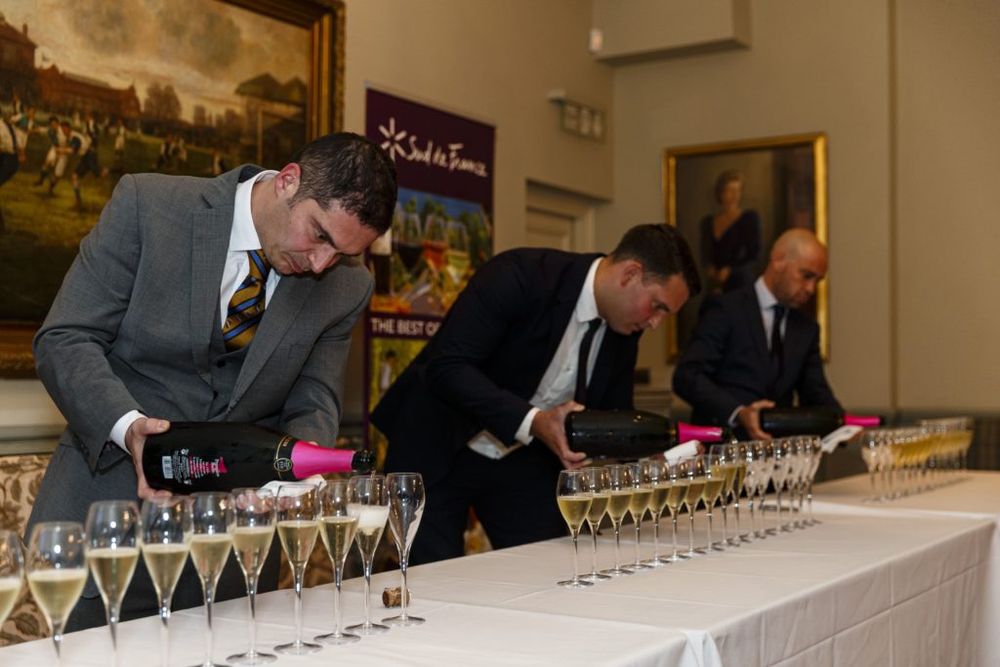
The final stage pouring out the magnum of sparkling wine. Miles Willis Photography
Pulling all the scores together and discussing the candidates at each stage of the event was the panel of judges which included:
- Douglas Blyde, drinks columnist for Evening Standard and wine consultant.
- Valentin Radosav, head sommelier at Gymkhana, and winner of the 2016 Sud de France Sommelier competition.
- Su-Lin Ong, wine and food specialist PR.
- Victoria Sharples, head of wine operations at St John Restaurant Group.
- Richard Siddle, editor-in-chief, The Buyer.
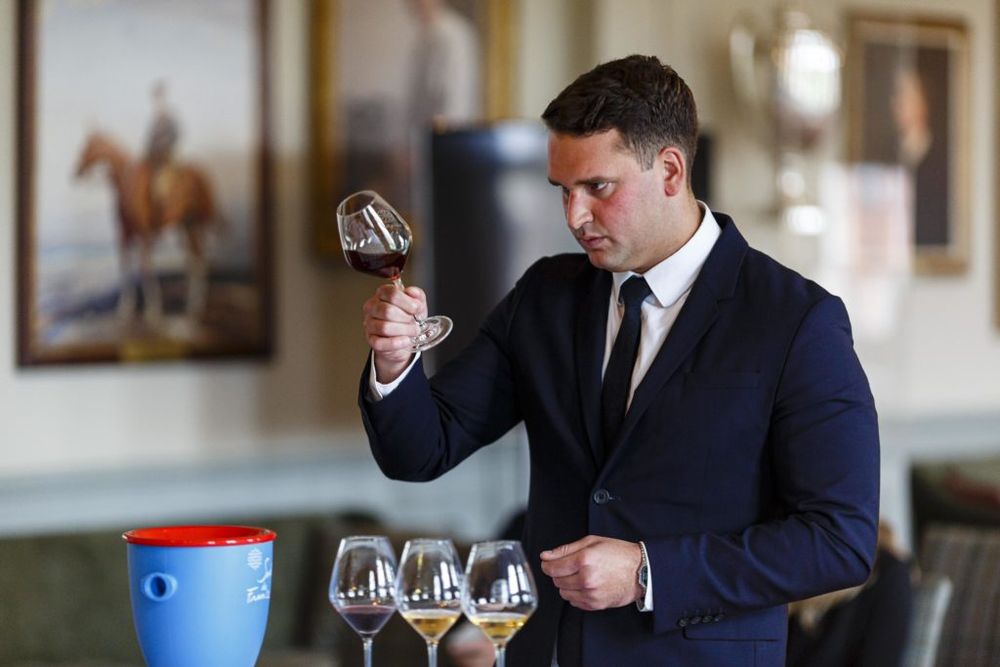
Andres Rangel during the blind tasting test. Miles Willis Photography
Andres Rangel will now be able to enjoy a trip to the International Sud de France Sommelier of the Year where he will receive a four-night stay in Occitanie, which includes a personalised tasting tour of selected premium vineyards. The runners up and semi-finalists also received a Master Level manual on the Languedoc-Roussillon vineyards, created by Matthew Stubbs MW.
Rangel follows an illustrious list of past winners. For including Valentin Radosav at Gymkhana there has been Ana Maria Martinez Terol of Terravina, Tamas Czinki and Adam Pawlowski of The Northcote, Lionel Periner of La Trompette, Stefan Neumann MW when he was at the Fat Duck, Sara Bachiorri of The Glasshouse and Romain Henry of Hibiscus.
